
The comedy film is a film genre that emphasizes humor. These films are designed to amuse audiences and make them laugh. Films in this genre typically have a happy ending, with dark comedy being an exception to this rule. Comedy is one of the oldest genres in film, and it is derived from classical comedy in theatre. Some of the earliest silent films were slapstick comedies, which often relied on visual depictions, such as sight gags and pratfalls, so they could be enjoyed without requiring sound. To provide drama and excitement to silent movies, live music was played in sync with the action on the screen, on pianos, organs, and other instruments. When sound films became more prevalent during the 1920s, comedy films grew in popularity, as laughter could result from both burlesque situations but also from humorous dialogue.

Theodor Seuss Geisel was an American children's author and cartoonist. He is known for his work writing and illustrating more than 60 books under the pen name Dr. Seuss. His work includes many of the most popular children's books of all time, selling over 600 million copies and being translated into more than 20 languages by the time of his death.

Gentleman's Agreement is a 1947 American drama film based on Laura Z. Hobson's best-selling 1947 novel of the same title. The film is about a journalist who pretends to be Jewish to research an exposé on the widespread antisemitism in New York City and the affluent communities of New Canaan and Darien, Connecticut. It was nominated for eight Academy Awards and won three: Best Picture, Best Supporting Actress, and Best Director.

The Salvation Army (TSA) is a Protestant Christian church and an international charitable organisation headquartered in London, England. It is aligned with the Wesleyan-Holiness movement. The organisation reports a worldwide membership of over 1.7 million, consisting of soldiers, officers, and adherents who are collectively known as salvationists. Its founders sought to bring salvation to the poor, destitute, and hungry by meeting both their "physical and spiritual needs". It is present in 133 countries, running charity shops, operating shelters for the homeless, and disaster relief and humanitarian aid to developing countries.
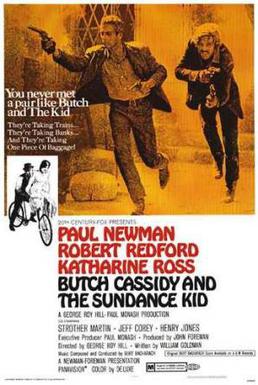
Butch Cassidy and the Sundance Kid is a 1969 American Western buddy film directed by George Roy Hill and written by William Goldman. Based loosely on fact, the film tells the story of Wild West outlaws Robert LeRoy Parker, known as Butch Cassidy, and his partner Harry Longabaugh, the "Sundance Kid", who are on the run from a crack US posse after a string of train robberies. The pair and Sundance's lover, Etta Place, flee to Bolivia to escape the posse.

Doc Savage is a fictional character of the competent man hero type, who first appeared in American pulp magazines during the 1930s and 1940s. Real name Clark Savage Jr., he is a polymathic scientist, explorer, detective, and warrior who "rights wrongs and punishes evildoers." He was created by publisher Henry W. Ralston and editor John L. Nanovic at Street & Smith Publications, with additional material contributed by the series' main writer, Lester Dent. Doc Savage stories were published under the Kenneth Robeson name. The illustrations were by Walter Baumhofer, Paul Orban, Emery Clarke, Modest Stein, and Robert G. Harris.
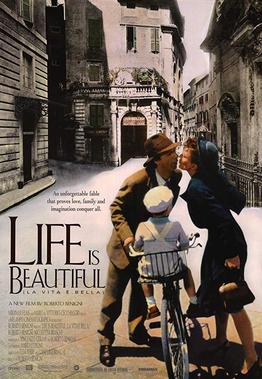
Life Is Beautiful is a 1997 Italian comedy-drama film directed by and starring Roberto Benigni, who co-wrote the film with Vincenzo Cerami. Benigni plays Guido Orefice, a Jewish Italian bookshop owner, who employs his imagination to shield his son from the horrors of internment in a Nazi concentration camp. The film was partially inspired by the book In the End, I Beat Hitler by Rubino Romeo Salmonì and by Benigni's father, who spent two years in the Bergen-Belsen concentration camp during World War II.

Wild and Woolly is a 1917 American silent Western comedy film which tells the story of one man's personal odyssey from cowboy-obsessed Easterner to Western tough guy. It stars Douglas Fairbanks, Eileen Percy, Walter Bytell and Sam De Grasse. The film was adapted by Anita Loos from a story by Horace B. Carpenter and was directed by John Emerson.
The year 1999 in film included Stanley Kubrick's posthumous final film Eyes Wide Shut, Pedro Almodóvar's first Oscar-winning film All About My Mother, the science-fiction film The Matrix, the animated works The Iron Giant, Toy Story 2, Tarzan, and South Park: Bigger, Longer & Uncut, the Best Picture-winner American Beauty, and the well-received The Green Mile. Other noteworthy releases include M. Night Shyamalan's The Sixth Sense, David Fincher's Fight Club, Sofia Coppola's The Virgin Suicides, Paul Thomas Anderson's Magnolia and Spike Jonze and Charlie Kaufman's Being John Malkovich. The year also featured George Lucas' top-grossing Star Wars: Episode I – The Phantom Menace. Columbia Pictures and Metro-Goldwyn-Mayer celebrated their 75th anniversaries in 1999.
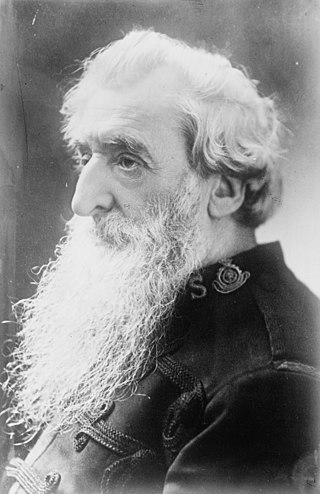
William Booth was an English Methodist preacher who, along with his wife, Catherine, founded the Salvation Army and became its first General (1878–1912). The Christian movement with a quasi-military structure and government founded in 1865 has spread from London to many parts of the world. It is known for being one of the largest distributors of humanitarian aid.
Harold Schechter is an American true crime writer who specializes in serial killers. He is a Professor Emeritus at Queens College, City University of New York where he taught classes in American literature and myth criticism for forty-two years. Schechter's essays have appeared in numerous publications including The New York Times, The Wall Street Journal, The Los Angeles Times, and the International Herald Tribune. He is the editor of the Library of America volume, True Crime: An American Anthology. His newest book, published in September 2023, is Murderabilia: A History of Crime in 100 Objects.

Pandora's Box is a 1929 German silent drama film directed by Georg Wilhelm Pabst, and starring Louise Brooks, Fritz Kortner, and Francis Lederer. The film follows Lulu, a seductive young woman whose uninhibited nature brings ruin to herself and those who love her. It is based on Frank Wedekind's plays Erdgeist and Die Büchse der Pandora.

Catherine Booth was co-founder of The Salvation Army, along with her husband William Booth. Because of her influence in the formation of The Salvation Army she was known as the 'Mother of The Salvation Army'.

Superhero films are movies centered on a superhero or a number of superheroes. These characters typically possess superhuman abilities, often with several distinct character archetypes and personalities. Traditionally, the first film in a series about a superhero character focuses on the hero's origin story and introduces the hero's nemesis. From there, these films usually blend elements of action, adventure, fantasy, and science fiction to address broad themes like power, justice, or good over evil.

The Wrong Man is a 1956 American docudrama film noir directed by Alfred Hitchcock and starring Henry Fonda and Vera Miles. The film was drawn from the true story of an innocent man charged with a crime, as described in the book The True Story of Christopher Emmanuel Balestrero by Maxwell Anderson and in the magazine article "A Case of Identity", which was published in Life magazine in June 1953 by Herbert Brean.
The Limelight Department was one of the world's first film studios, beginning in 1898, operated by The Salvation Army in Melbourne, Australia. The Limelight Department produced evangelistic material for use by the Salvation Army, including lantern slides as early as 1891, as well as private and government contracts. In its 19 years of operation, the Limelight Department produced about 300 films of various lengths, making it one of largest film producers of its time.
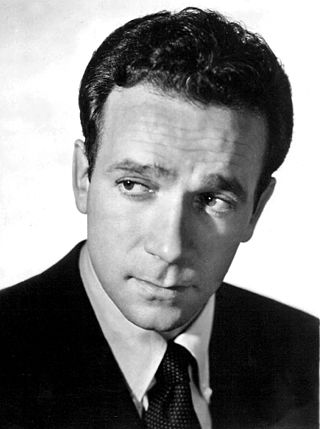
Dane Clark was an American character actor who was known for playing, as he labeled himself, "Joe Average."
William Schoell is an American author, biographer and film historian, born in Manhattan and educated in Vermont, earning a B.A. from Castleton University. A cult horror author known for his visceral, energetic and graphic style, he has written several horror and suspense novels, such as Late at Night (1986) and Saurian (1988), as well as more recent forays into the genre, such as Monster World and Posthumous. He was the author of "Hidden Horrors," a column in the now defunct horror magazine The Scream Factory, now writes for Bare Bones magazine, and was a contributor of articles and reviews to periodicals including Writer, Writer's Digest, Paris Notes, Off Duty, Library Journal, and BBC Music. He was also a talk show radio host and producer. More recently, he has published books that deal with film, and biographies, some of which were written together with Hollywood biographer Lawrence J. Quirk, his domestic partner. His play Joe and Janice premiered at the American Theater of Actors in 2000. He writes a popular blog on movies called Great Old Movies as well as one on B movies, B Movie Nightmare. Prominent in the Gay Rights Movement in the 1970s and later, he formerly had a blog called "Ask Gay "Dr." Bill," which answered questions about gay life and the LGBT community.
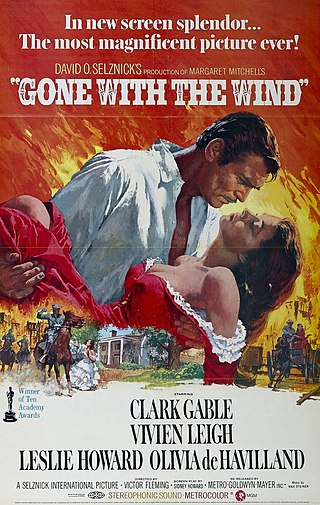
In film and television, drama is a category or genre of narrative fiction intended to be more serious than humorous in tone. The drama of this kind is usually qualified with additional terms that specify its particular super-genre, macro-genre, or micro-genre, such as soap opera, police crime drama, political drama, legal drama, historical drama, domestic drama, teen drama, and comedy-drama (dramedy). These terms tend to indicate a particular setting or subject matter, or they combine a drama's otherwise serious tone with elements that encourage a broader range of moods. To these ends, a primary element in a drama is the occurrence of conflict—emotional, social, or otherwise—and its resolution in the course of the storyline.

Soldiers of the Cross was a multimedia production directed by Joseph Perry, made in Australia by the Limelight Department of the Salvation Army. It premiered in 1900 and toured nationally and internationally until 1920.
















